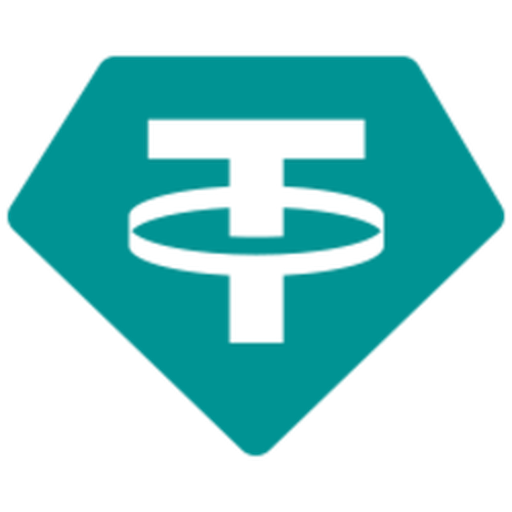Tether vs LayerZero – Price, Market Cap & Performance Compared
Which coin performs better – Tether or LayerZero?
We compare the current price (1 $ vs 2.15 $), market cap (173 087 463 220 vs 239 008 131) and all-time high (1.32 vs 7.47).
Find out which one stands out right now!
Tether is currently trading at 1 $, while LayerZero stands at 2.15 $. These cryptocurrencies differ not only in price but also in market presence.
The market cap of Tether is around 173 087 463 220, and LayerZero has about 239 008 131. Their respective all-time highs are 1.32 for Tether and 7.47 for LayerZero.
Daily trading volume and the 24h price change (-0.00189 % vs 4.16517 %) also offer key insights.
Compare all metrics now and see which coin fits your investment strategy best!
Tether
Tether is a widely-used stablecoin in the cryptocurrency market, designed to maintain a value equivalent to a traditional currency like the US dollar. It provides traders and investors with a stable asset to navigate the volatile crypto landscape, offering a flexible means to move funds quickly between exchanges. Despite its popularity, Tether has faced scrutiny regarding its reserve holdings and transparency, sparking ongoing debates within the financial community.
more informationLayerZero
LayerZero is a blockchain protocol designed to enable seamless cross-chain communication and interoperability. By facilitating the transfer of data and assets across different blockchain networks, it aims to overcome one of the major challenges in the crypto space: isolation. This protocol enhances the versatility and functionality of decentralized applications, contributing to a more connected blockchain ecosystem.
more information

|

|
|
|
|
General Information |
|
|---|---|
|
Title
Tether
|
Title
LayerZero
|
|
Symbol
usdt
|
Symbol
zro
|
|
Whitepaper
|
Whitepaper
-
|
|
Website
|
Website
|
|
Community
-
|
Community
-
|
|
Last Updated
2025-09-24 23:29
|
Last Updated
2025-09-24 23:29
|
Price Data |
|
|---|---|
|
Current Price $
1 $
|
Current Price $
2.15 $
|
|
High 24h
1 $
|
High 24h
2.24 $
|
|
Low 24h
1 $
|
Low 24h
2.06 $
|
|
Price Change 24h
-0.00002 $
|
Price Change 24h
0.08613 $
|
|
Price Change % 24h
-0.00189 %
|
Price Change % 24h
4.16517 %
|
Market Data |
|
|---|---|
|
Market Cap
173 087 463 220
|
Market Cap
239 008 131
|
|
Total Volume
95 616 120 249
|
Total Volume
148 551 609
|
|
Market Cap Change 24h
288 328 065
|
Market Cap Change 24h
8 053 150
|
|
Market Cap Change % 24h
0.16686 %
|
Market Cap Change % 24h
3.48689 %
|
|
Return on Investment (ROI)
-
|
Return on Investment (ROI)
-
|
Supply and Availability |
|
|---|---|
|
Circulating Supply
173 039 417 063
|
Circulating Supply
111 152 854
|
|
Total Supply
173 039 417 063
|
Total Supply
1 000 000 000
|
|
Max Supply
-
|
Max Supply
1 000 000 000
|
Historical Data |
|
|---|---|
|
All Time High (ATH)
1.32
|
All Time High (ATH)
7.47
|
|
ATH Change %
-24.39867 %
|
ATH Change %
-71.23195 %
|
|
ATH Date
2018-07-24 00:00
|
ATH Date
2024-12-06 14:15
|
|
All Time Low (ATL)
0.57252
|
All Time Low (ATL)
1.5
|
|
ATL Change %
74.71457 %
|
ATL Change %
43.05233 %
|
|
ATL Date
2015-03-02 00:00
|
ATL Date
2025-06-22 20:20
|
Tether
Understanding Tether: A Stablecoin Powerhouse
Tether (USDT) is a leading name in the world of stablecoins, a class of cryptocurrency designed to facilitate transactions by maintaining a stable value. Unlike volatile cryptocurrencies like Bitcoin or Ethereum, stablecoins like Tether aim to provide users with the stability of fiat currency, while still leveraging the benefits of blockchain technology.
The Mechanism Behind Tether's Stability
Tether achieves its stability by pegging its value to traditional fiat currencies, primarily the U.S. Dollar. Each Tether token is reportedly backed by an equivalent amount of fiat currency held in reserve. This 1:1 backing mechanism is key to maintaining the coin's stable value, as reflected in its market price which typically hovers around 1 USD.
Historical Development and Milestones
Tether's inception dates back to 2014, and since then, it has played a pivotal role in demonstrating the practical use case of stablecoins within the crypto ecosystem. Its journey has seen significant milestones, including reaching its all-time high of $1.32 in July 2018, and experiencing its low at $0.572521 in March 2015. These deviations, while noteworthy, are rare occurrences in Tether's overall history, underscoring its primary objective of price stability.
Advantages of Using Tether
The primary advantage of Tether is its stability, making it a safe harbor for investors during times of high volatility in the broader cryptocurrency market. By offering price predictability, it facilitates more efficient trading, lending, and arbitrage, making it an indispensable tool for crypto exchanges and users alike. Moreover, Tether's utility is further enhanced by its widespread acceptance and high liquidity.
Challenges and Controversies
Despite its widespread use, Tether has faced scrutiny regarding its claims of full fiat backing. Critics have raised concerns about transparency, regulatory challenges, and the adequacy of its audited reserves. These issues have occasionally prompted regulatory attention and calls for greater transparency and accountability from Tether’s management.
Future Outlook for Tether
The future of Tether rests heavily on its ability to maintain trust and transparency with users and regulators alike. As the crypto market matures, Tether is expected to continue playing a significant role, particularly if it can navigate the evolving regulatory landscape successfully. Its position as a stablecoin market leader suggests that it will remain a cornerstone in crypto trading, offering a reliable alternative to more volatile assets.
In conclusion, Tether stands out as a critical tool within the cryptocurrency space, providing much-needed stability for traders and businesses. Its ongoing relevance will depend on its adaptability to regulatory demands and its continued assurance of transparency and full reserve backing to its user base.
LayerZero
An Introduction to LayerZero: Bridging Blockchain Ecosystems
LayerZero, symbolized as ZRO, is an innovative coin in the cryptocurrency landscape that has garnered significant attention for its approach to inter-blockchain communication. With its focus on facilitating seamless and decentralized cross-chain operations, LayerZero aims to solve one of the most pressing challenges in the crypto space: effective interoperability between disparate blockchain networks.
Technology and Mechanism
At its core, LayerZero leverages a protocol design known as the "omnichain interoperability protocol." This protocol enables different blockchain networks to communicate with each other without the need for a centralized intermediary. The key technological driver includes a consensus algorithm that prioritizes minimal latency and high security through off-chain relayer mechanisms.
The Benefits of LayerZero
One of the main advantages of LayerZero is its robust approach to interoperability, which paves the way for more interconnected blockchain solutions. This opens up numerous possibilities for decentralized applications (dApps) to operate across multiple blockchain ecosystems, enhancing overall network utility and user access. Additionally, LayerZero strives to maintain low transaction fees and high-speed transactions, making it an attractive option for developers and users alike.
Potential Drawbacks
Despite its innovative approach, LayerZero is not without its challenges. The reliance on a novel consensus mechanism could pose adoption barriers, especially if competing interoperability solutions gain more traction or prove more effective. Moreover, the network’s security heavily depends on the robustness of its off-chain components, which might introduce vulnerabilities if not properly managed.
Historical Price Performance and Current Market Insights
Since its All Time Low (ATL) at $2.48 on June 27, 2024, LayerZero has marked significant upward movement, hitting an All Time High (ATH) of $5.53 by July 22, 2024. However, there’s been a retracement, with current prices around $3.71. This volatility is typical in the crypto market but suggests underlying confidence in LayerZero’s long-term potential despite short-term corrections.
The market capitalization of LayerZero stands at approximately $411,899,095 with a circulating supply of over 111 million coins. Its continuous development and strategic partnerships drive speculative and investor interest.
Looking to the Future
In terms of future prospects, LayerZero holds promise, primarily due to its commitment to advancing cross-chain solutions and enhancing blockchain interoperability. As the landscape becomes more interconnected, solutions like LayerZero could become central to DeFi protocols, NFT marketplaces, and more.
However, much will depend on its ability to execute planned developments and articulation of real-world use cases that demonstrate the value of its omnichain solution. Staying agile and responsive to technological advances in the blockchain space will be crucial for LayerZero’s sustained growth and relevance.
Conclusion
LayerZero offers a compelling proposition in blockchain interoperability, bringing both opportunities and certain risks. Its current market positioning, innovative technological framework, and the increasing need for cross-chain solutions support a positive long-term outlook. Investors and developers intrigued by the concept of a more interconnected blockchain future should consider paying close attention to this versatile coin.

